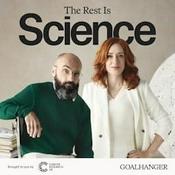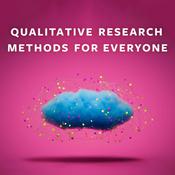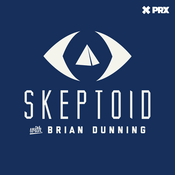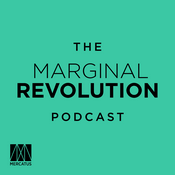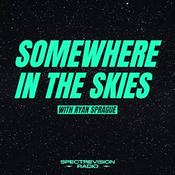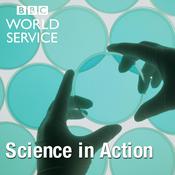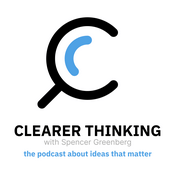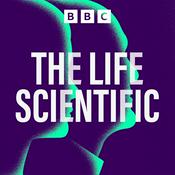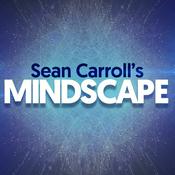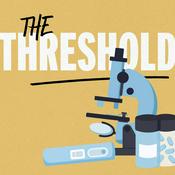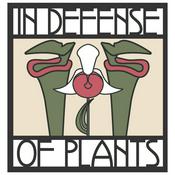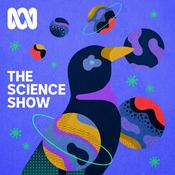12 episodes

Metascience 101 - EP9: "How to Get Involved"
05/11/2024 | 45 mins.
IN THIS EPISODE: Professor Heidi Williams, Professor Paul Niehaus, and Matt Clancy walk through academic, non-profit and private sector paths to research, the importance of your surroundings, and how you can find good use-inspired questions.“Metascience 101” is a nine-episode set of interviews that doubles as a crash course in the debates, issues, and ideas driving the modern metascience movement. We investigate why building a genuine “science of science” matters, and how research in metascience is translating into real-world policy changes. Chapters(00:00:00) Introduction(00:01:36) Public service in government(00:09:23) Academia-adjacent jobs(00:14:47) Time in the private sector(00:17:23) Thinking about PhD route(00:23:59) Guiding and advising students in academia(00:25:36) What to do during your PhD(00:28:50) Institutions, surroundings, and peers(00:35:57) Finding use-based questions(00:39:53) Sales pitch to do research This is a public episode. If you would like to discuss this with other subscribers or get access to bonus episodes, visit www.macroscience.org

Metascience 101 - EP8: "Invention vs. Diffusion"
29/10/2024 | 38 mins.
IN THIS EPISODE: Journalist Derek Thompson and economist Eli Dourado investigate the bottlenecks standing in the way of the invention vs. the diffusion of ideas. They discuss whether new ideas are getting harder to find, how to get these new ideas to scale, and how a crisis can spur effective implementation.“Metascience 101” is a nine-episode set of interviews that doubles as a crash course in the debates, issues, and ideas driving the modern metascience movement. We investigate why building a genuine “science of science” matters, and how research in metascience is translating into real-world policy changes. Chapters(00:00:00) Introduction(00:01:44) Are ideas getting harder to find?(00:07:25) Thinking through implementation(00:18:26) Crises spurring effective implementation(00:25:53) Drug research This is a public episode. If you would like to discuss this with other subscribers or get access to bonus episodes, visit www.macroscience.org

Metascience 101 - EP7: “Science and Political Legitimacy"
23/10/2024 | 1h 10 mins.
IN THIS EPISODE: Journalist Dylan Matthews leads a conversation with Open Philanthropy CEO Alexander Berger, Professor Tyler Cowen, and IFP Co-CEO Caleb Watney. Together, they explore the relationship between effective, robust scientific institutions and notions of political legitimacy.“Metascience 101” is a nine-episode set of interviews that doubles as a crash course in the debates, issues, and ideas driving the modern metascience movement. We investigate why building a genuine “science of science” matters, and how research in metascience is translating into real-world policy changes. Chapters(00:00:00) Introduction(00:01:24) Current science research funding(00:10:13) Reason for bureaucratic restrictions(00:14:50) Legibility of science policy to the public(00:25:06) Legible science and curing disease(00:29:07) NIH as vital part of funding infrastructure(00:31:57) Immigration(00:42:55) Scientific clusters and place-based policy(00:46:08) Science powers and immigration(00:49:33) Making science utopian and fun(00:53:12) Science role models(00:55:49) Science policy elsewhere(00:58:17) Overrated / Underrated This is a public episode. If you would like to discuss this with other subscribers or get access to bonus episodes, visit www.macroscience.org

Metascience 101 - EP6: “Safety and Science”
16/10/2024 | 55 mins.
IN THIS EPISODE: Journalist Dylan Matthews sits down with Professor Tyler Cowen, Matt Clancy, and Jacob Trefethen to discuss whether there are tensions between accelerating science and safety. With case studies where society has faced this tradeoff between progress in science and safety, they work through strategies we can use to accelerate science safely.“Metascience 101” is a nine-episode set of interviews that doubles as a crash course in the debates, issues, and ideas driving the modern metascience movement. We investigate why building a genuine “science of science” matters, and how research in metascience is translating into real-world policy changes. Chapters(00:00:00) Introduction(00:00:37) Being pro-science while understanding downsides of science(00:08:39) Why does science seem so safe currently?(00:10:21) Indicators of increasing risk(00:13:26) Major changes and “wild times” in history(00:17:21) Inevitability of the path of science?(00:23:54) Feedback loop on safety(00:26:46) Reliance on a hegemon for safety(00:29:33) Nuclear catastrophe chain example(00:32:54) Information security and reputation incentives(00:36:17) Balancing safety and progress(00:39:26) Best regulated area?(00:43:58) Differential technology development(00:46:25) Underrated / Overrated This is a public episode. If you would like to discuss this with other subscribers or get access to bonus episodes, visit www.macroscience.org

Metascience 101 - EP5: "How and Why to Run an Experiment"
09/10/2024 | 58 mins.
IN THIS EPISODE: Professor Heidi Williams, Professor Paul Niehaus, Emily Oehlsen, and Jim Savage dive in on a practical “how-to” for experimentation and evaluation in metascience. They discuss how to keep metascience experimentation and evaluation relevant to policymakers.“Metascience 101” is a nine-episode set of interviews that doubles as a crash course in the debates, issues, and ideas driving the modern metascience movement. We investigate why building a genuine “science of science” matters, and how research in metascience is translating into real-world policy changes. Chapters(00:00:00) Introduction(00:00:37) Research on research(00:03:34) Identifying talent, RISE program(00:14:44) Impact evaluation, GiveDirectly(00:17:57) Decision making with impact evaluation(00:31:45) Replications(00:35:11) Existential vs. operational experiments and evaluation(00:42:21) Outcome measurability: benchmarks, surrogates and new evidence(00:52:01) GiveDirectly as example of evidence-based approach(00:55:01) Government evidence-based as a way This is a public episode. If you would like to discuss this with other subscribers or get access to bonus episodes, visit www.macroscience.org
More Science podcasts
Trending Science podcasts
About The Macroscience Podcast
Listen to The Macroscience Podcast, Curious Cases and many other podcasts from around the world with the radio.net app

Get the free radio.net app
- Stations and podcasts to bookmark
- Stream via Wi-Fi or Bluetooth
- Supports Carplay & Android Auto
- Many other app features
Get the free radio.net app
- Stations and podcasts to bookmark
- Stream via Wi-Fi or Bluetooth
- Supports Carplay & Android Auto
- Many other app features


The Macroscience Podcast
download the app,
start listening.








